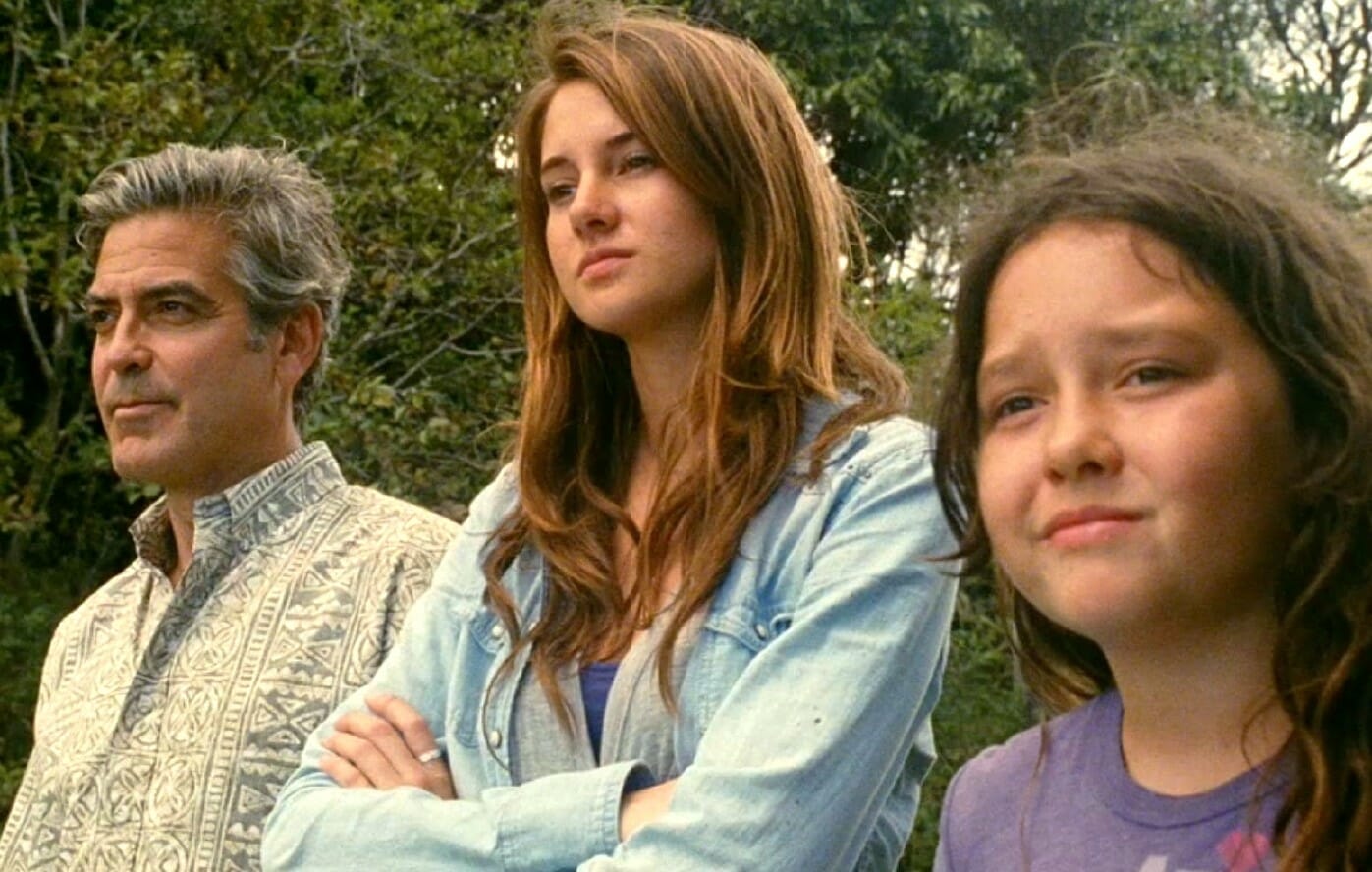
Despite the acclaim surrounding the name Alexander Payne, the new drama from the celebrated director doesn’t live up to the high standards usually associated with him. Due to a flat performance from its star, George Clooney, and an emotional disconnection between the story, characters and audience, The Descendants instead settles for mediocrity.
Set in Hawaii, The Descendants centers on a busy lawyer named Matt King (Clooney) who finds himself in quite the predicament: His wife, who he’s neglected to love during the latter years of their marriage, is in a coma about to die. To make matters worse, he discovers that she has been cheating on him and planning to ask for a divorce.
Layered with possibility, this premise has the potential to become a moving story about death and forgiveness. And even though it eventually tries with a somewhat poignant finale, Payne spends too much time getting there, boring us with an aimless middle chapter that disconnects us from the characters and their final redemption.
The rabbit trail follows King, along with his two daughters, Scottie (Amara Miller) and Alexandra (Shailene Woodley), and Alexandra’s dopey friend (Nick Krause) as he becomes determined on finding and confronting his wife’s lover. This plotline makes for some funny moments, but Payne drags it out to the point that, when King finally finds the guy, the showdown feels anticlimactic and thus unsatisfying.
King’s search for his wife’s paramour is obviously meant to serve as a catalyst for the renewal the relationships between King and his daughters, especially Alexandra, who’s had a history with drugs and older men. Unfortunately, the film becomes so focused on King and his vengeance that the relationship between the father and daughters becomes secondary, and the most significant scene we get is Alexandra laying her head on her father’s shoulder.
Throughout The Descendants, we get only glimpses inside the characters and their motivations. Sure, they are all jaded and struggling to make sense of their lives, but beyond an emotional reaction to their difficult situation, we don’t really understand why this is so. Nor does any particular event indicate a justification for their eventual reconciliation.
This lack of depth partly derives from Payne’s blatant avoidance of sentimentality. As if determined to reestablish his understated, unconventional indie style, he refrains from creating any scenes of high drama until the finale, and that still seems lacking. This choice keeps us from connecting to the characters—and by extension the story—because we can’t see or feel any emotion.
The same lifelessness extends to the visuals. While trying to portray a different perspective of Hawaii, Payne actually manages to drain the color from a tropical paradise. In doing so, he strips away still more life and feeling from the picture.
The cast can’t overcome this approach. In the lead role, Clooney fails to create a protagonist who comes across as convincing and sympathetic. Instead, he gives us the same character he always plays—himself—a sly, rich, smooth-talking hunk. (If we weren’t shown otherwise, we could easily believe that his King makes a living by flying around the country firing people.)
The two young women playing his daughters, however, stand in contrast to Clooney. Though the script does them no favors, both Miller and Woodley do an admirable job of forging believable human beings out of their characters. As the friend and a comic foil, Krause is unable to pull off the same feat—his surfer, hippy persona feels about as real as Disney’s Johnny Tsunami.
Ultimately, even a somewhat vigorous finale can’t redeem The Descendants’s flaws. And that’s unfortunate because the poignant sequence with King and his dying wife evokes real pathos. It challenges cultural perceptions of love and justice, specifically in regards to marriage, and proposes a message of grace and forgiveness, a message of ’til death do us part. It’s just too bad this moralistic core is overwhelmed by the cold tone and weakly realized characters.